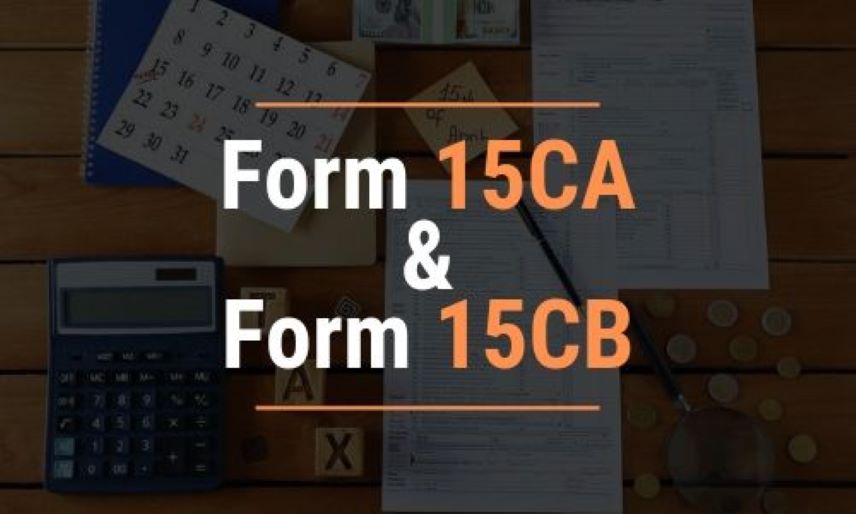15CA - 15CB Filing Explained: Everything You Need to Know
When it comes to sending money outside India, compliance with Indian tax laws becomes crucial. This is where Form 15CA and Form 15CB come into play. If you're a business owner, freelancer, or even an individual making payments abroad, understanding these forms is vital to avoid penalties and ensure seamless transactions.
In this guide, we’ll break down everything you need to know about 15CA and 15CB filing, their purpose, who needs to file them, and how to stay compliant.
✅ What is Form 15CA?
Form 15CA is a declaration of remitter (the person/entity making the payment) used to collect information regarding payments that are chargeable to tax in India.
It is part of the process to ensure that foreign remittances comply with the Income Tax Act, 1961.
📌 Purpose of Form 15CA:
-
To track foreign remittances.
-
To determine whether the remittance is taxable or not.
-
To help the Income Tax Department collect tax at source on foreign payments, if applicable.
✅ What is Form 15CB?
Form 15CB is a certificate issued by a Chartered Accountant (CA). It certifies the nature of the payment, the rate of tax applicable as per the Double Taxation Avoidance Agreement (DTAA), and if Tax Deducted at Source (TDS) has been correctly applied.
It acts as a supporting document for filing Form 15CA.
🧾 What it Includes:
-
Details of the remitter and recipient.
-
Nature and purpose of the remittance.
-
Applicable provisions of the Income Tax Act and DTAA.
-
TDS rate and amount deducted (if any).
📋 When is 15CA and 15CB Filing Required?
| Situation | Form Required |
|---|---|
| Payment not taxable in India & < ₹5 Lakh in FY | Only Form 15CA (Part A) |
| Payment not taxable in India & > ₹5 Lakh | Form 15CA (Part D) + 15CB optional |
| Payment taxable in India & ≤ ₹5 Lakh | Form 15CA (Part B) |
| Payment taxable in India & > ₹5 Lakh | Form 15CA (Part C) + Form 15CB mandatory |
🔄 Filing Process for 15CA & 15CB
-
Determine Taxability: Identify if the remittance is taxable in India.
-
Chartered Accountant’s Involvement: Get Form 15CB issued by a CA (if applicable).
-
Log in to Income Tax Portal: Submit the appropriate part of Form 15CA.
-
Submit to Bank/AD: Provide the filed forms to your Authorized Dealer (bank) for processing the remittance.
📑 Documents Required
-
PAN Card of remitter
-
Bank details and transaction invoice
-
Remittance agreement (if any)
-
Tax residency certificate (TRC) of the recipient (for DTAA benefits)
-
Form 10F and self-declaration (if required)
-
Form 15CB issued by CA
⏳ Timelines & Penalties
-
The forms should be submitted before the remittance is made.
-
Penalty for non-filing: ₹1,00,000 under Section 271-I of the Income Tax Act for not furnishing information in Form 15CA/15CB.
💼 Who Needs to File?
-
Indian companies making foreign payments
-
Freelancers paying for overseas services (e.g, software, design)
-
Individuals making large transfers abroad (e.,g. education fees, gifts)
-
Exporters and importers
🌍 Common Examples of Foreign Payments Requiring 15CA/15CB
-
Payments for foreign software subscriptions
-
Import of services from freelancers/agencies abroad
-
Commission to non-resident agents
-
Education fees or remittances for family maintenance
-
Purchase of foreign assets or shares
💡 Expert Tip
Even if the payment is not taxable in India, documentation via 15CA is often still required. When in doubt, consult a Chartered Accountant to avoid errors.
🚀 Conclusion
Whether you're a business expanding globally or a professional availing international services, 15CA and 15CB filing is a vital compliance requirement. Filing correctly and on time ensures smooth transactions and keeps you on the right side of the law.
Need help with 15CA & 15CB filing? Reach out to our expert CA services for a fast, hassle-free experience.
